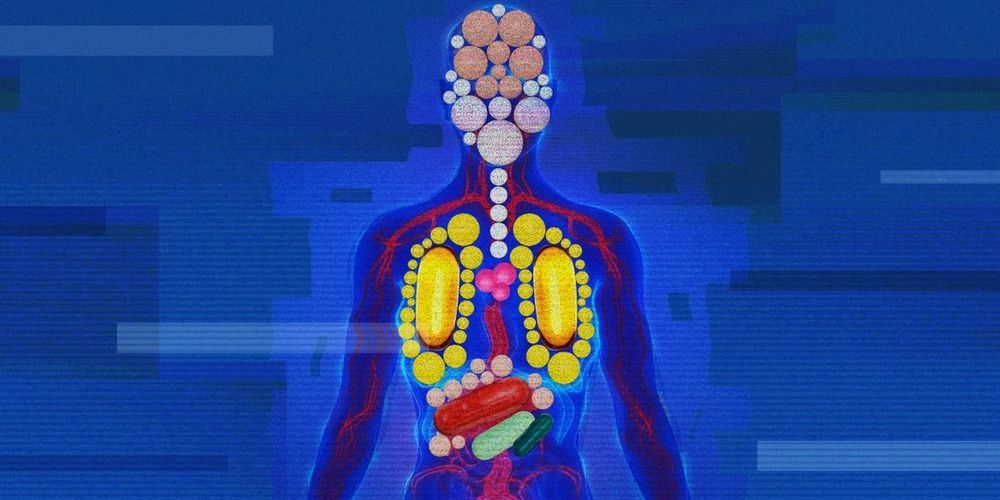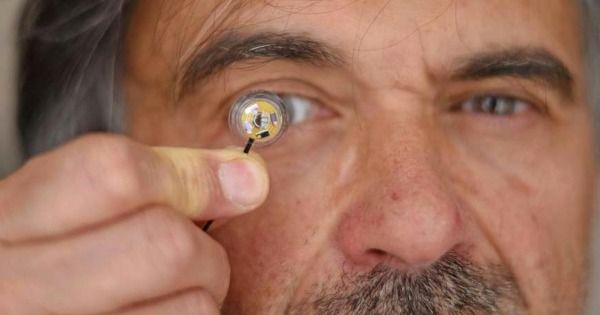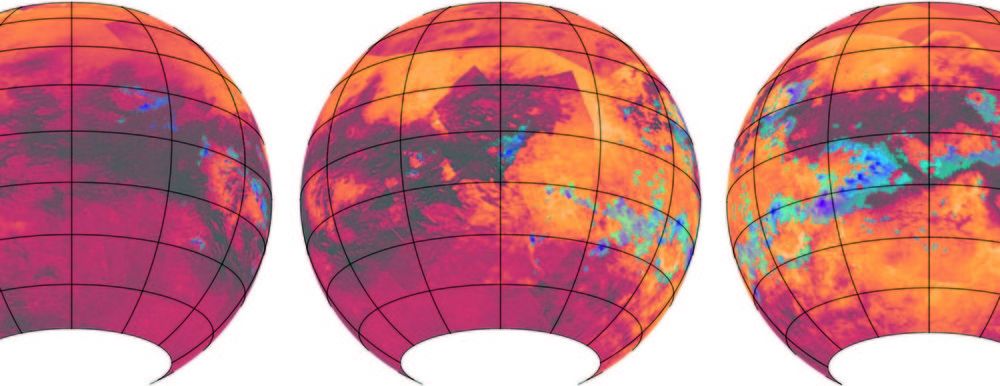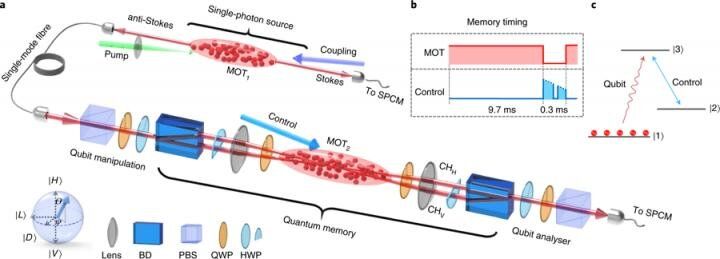Page 8859
Apr 29, 2019
‘It’s the next rising platform’: 2 promising technologies backed by billion-dollar drugmakers could transform the human body into a disease-destroying machine
Posted by Genevieve Klien in categories: biotech/medical, neuroscience
MeiraGTx’s founders were interested in those uses; the biotech’s programs today are in diseases of the eye, salivary gland and brain.
But “we wanted to have a broader perspective on how you could potentially use gene therapy” too, CEO Alexandria Forbes says.
That vision is a high-tech, futuristic one, in which the human body can essentially become a medicine-making factory, enabled by gene therapy. But it’ll require more research, and is still years from fruition.
Apr 29, 2019
Starlink: SpaceX Internet Satellite Constellation Just Got the Green Light
Posted by Shane Hinshaw in categories: internet, satellites
Starlink could offer internet to anyone on the planet.
Starlink could transmit internet down to the ground.
Apr 29, 2019
DARPA: This Smart Contact Lens Could Give Soldiers Superpowers
Posted by Shane Hinshaw in categories: biotech/medical, engineering, military
“Smart” contact lenses sound like something from a sci fi movie — but they’re real, and they could help troops in the field.
French engineering school IMT Atlantique revealed what it calls “the first stand-alone contact lens with a flexible micro battery” earlier this month.
And, notably, it caught the attention of the U.S. military’s attention: the Defense Advanced Research Projects Agency (DARPA) is reportedly interested in the contact lens to augment troops’ visual capabilities in the field, according to Task and Purpose — meaning the gadget could represent the augmented contact lens that DARPA has spent a decade searching for.
Continue reading “DARPA: This Smart Contact Lens Could Give Soldiers Superpowers” »
Apr 29, 2019
SpaceX-Like Startups Think They Can Solve Fusion For Cheap
Posted by Genevieve Klien in category: space travel
But even with existing research, achieving sustained fusion inside a reactor is still many years out.
Apr 29, 2019
Researchers find ice feature on Saturn’s giant moon
Posted by Genevieve Klien in categories: materials, space
Rain, seas and a surface of eroding organic material can be found both on Earth and on Saturn’s largest moon, Titan. However, on Titan it is methane, not water, that fills the lakes with slushy raindrops.
Apr 29, 2019
Chinese scientists insert human brain gene into monkeys
Posted by Paul Battista in category: neuroscience
Apr 29, 2019
CRISPR Co-Inventor: We’ll Be Eating Gene-Edited Food In Five Years
Posted by Paul Battista in categories: biotech/medical, food, genetics
Apr 29, 2019
Dino: Autonomous Weeding Robot Covers 12 Acres in 9 Hours
Posted by James Christian Smith in categories: food, robotics/AI, sustainability
Here is a vegetable weeding robot designed to increase efficiency on large-scale vegetable farms. It works autonomously and can cover up to 12 acres in 9 hours. It uses GPS and camera to get the job done with accuracy.

Dino is designed to reduce labor costs and free up time for farming teams to focus on more important tasks. It can be put on a schedule and since it’s electric, only minimal maintenance is required.
Continue reading “Dino: Autonomous Weeding Robot Covers 12 Acres in 9 Hours” »
Apr 29, 2019
Physicists set a new record of quantum memory efficiency
Posted by Genevieve Klien in categories: computing, quantum physics
Like memory in conventional computers, quantum memory components are essential for quantum computers—a new generation of data processors that exploit quantum mechanics and can overcome the limitations of classical computers. With their potent computational power, quantum computers may push the boundaries of fundamental science to create new drugs, explain cosmological mysteries, or enhance accuracy of forecasts and optimization plans. Quantum computers are expected to be much faster and more powerful than their traditional counterparts as information is calculated in qubits, which, unlike the bits used in classical computers, can represent both zero and one in a simultaneous superstate.
Photonic quantum memory allows for the storage and retrieval of flying single-photon quantum states. However, production of such highly efficient quantum memory remains a major challenge as it requires a perfectly matched photon-matter quantum interface. Meanwhile, the energy of a single photon is too weak and can be easily lost into the noisy sea of stray light background. For a long time, these problems suppressed quantum memory efficiencies to below 50 percent—a threshold value crucial for practical applications.
Now, for the first time, a joint research team led by Prof. Du Shengwang from HKUST, Prof. Zhang Shanchao from SCNU, Prof. Yan Hui from SCNU and Prof. Zhu Shi-Liang from SCNU and Nanjing University has found a way to boost the efficiency of photonic quantum memory to over 85 percent with a fidelity of over 99 percent.
Continue reading “Physicists set a new record of quantum memory efficiency” »


















